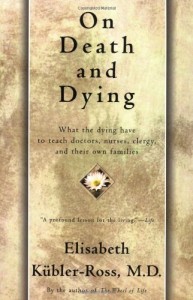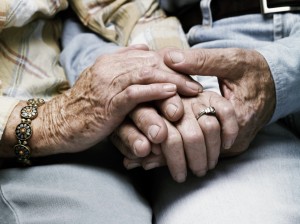
Grieving the Loss of a Child: The Five Stage Myth
When we think of death, dying and grief, no one therapist has had the impact and staying power as that of Elisabeth Kübler-Ross. Her five stage model, presented in her classic, On Death and Dying, has been an influential voice on the topic for decades.
But in the last few years, work in the field has put the universality of that model in question. Some, such as Russell Friedman, therapist and director of the Grief Recovery Institute argue that with many kinds of loss people don’t grieve in five stages at all.
Originally intended to describe experiential stages of people facing their own impending death, mental health providers as well as school counsellors and educators seem to have generalized the Kübler-Ross model to a multitude of situations, some applicable, some not so much.
In a recent interview, The Trauma & Mental Health Report spoke with Katherine, who described her personal reactions throughout the first year after the loss of her son, Ben, who was killed in a car accident ten days shy of his twenty-first birthday. Like many coping with loss, her grief did not follow the patterns described by Kübler-Ross, it was much less predictable.
Katherine: I decided to see a social worker a few months after Ben died. We talked about grief after loss and the counsellor recited Elisabeth Kübler-Ross’s five stage grief model: denial, anger, bargaining, depression, and acceptance. This didn’t describe how I was feeling at all…
During the first few months after the accident, the only way I can describe how I was feeling is that there was no ‘feeling.’ It was as if my heart was ripped out and stomped on. There was nothing left, but a complete numbness.
According to clinical psychologists Jennifer Buckle and Stephen Fleming, co-authors of Parenting after the Death of a Child: A Practitioner’s Guide, this feeling of numbness described by Katherine, is often the first grieving experience reported by bereaved parents. Coupled with this sense of numbness, bereaved parents, especially mothers, feel vulnerable and unprotected in what is now considered to be an unfair world.
Eventually the numbness subsides and the unsettling and preoccupying images of the child’s death take over. Almost all bereaved parents make reference to traumatic memories. Even parents not present when their child died describe the trauma experienced as if they were physically there and directly involved.
Katherine: The nightmares just didn’t want to go away. I would have the same reoccurring dream. I would see a red traffic light and hear cars crashing, and then I would wake up in panic. It came to the point where I was anxious every night before bed; I knew what was coming, another nightmare or barely any sleep. I can’t recall having a peaceful sleep the first few months.
Katherine’s nightmares became less frequent over time, but still crept up on occasion. In Buckle and Fleming’s view, the impact of trauma can lessen for some over time; but for others, the images and violent memories may vividly persist.
Grieving parents also fight with recurring flashes of past memories they shared with their deceased child. After a child’s death, most parents feel as if a part of their life has been erased, this is a very frightening. To cope, some parents will resort to avoiding places they associate with the deceased child.
Katherine: It took me over a year to set foot in another hockey arena. Ben was coming home from hockey the night of the accident… just the idea of going into an arena was painful. All the memories… watching him learn how to skate, going to hockey practices, and going with the family to hockey tournaments. I was trying to avoid that pain.
Bereaved parents put a lot of energy into avoiding feelings, memories and places that remind them of the child. At times they also ruminate, thinking about what could or should have been.
Katherine: Sometimes I can’t help it, something will remind me of Ben, and I immediately think about what things would be like now if he was still around. It gets really hard at family get-togethers and around birthdays and holidays. Not having him there… a parent can never get used to that.
Psychology professor Susan Nolen-Hoecksema, on faculty at Yale University, reports that women tend to ruminate more if they were battling depression before their child’s death, in comparison to women who were not. Elderly bereaved parents also tend to ruminate more than younger bereaved parents. With more free time on their hands, there is occasion to think about what might have been.
So why do some parents have an easier time adjusting after the loss of a child, compared to others?
To move forward, grief counsellors tend to agree that parents need to experience their own pain, keep the deceased child’s memory alive, and accept the loss, a notion that aligns well with the Kübler-Ross “acceptance” stage. Parents who continue to avoid don’t adjust so well.
The ability to learn from bereavement helps parents take responsibility for creating a new purposeful life. Irvin Yalom, author of Existential Psychotherapy posits that when parents find it too painful to learn from their bereavement experience, they are unwilling to “feel true feelings guiltlessly.” For parents to adjust well, realising that it’s okay to be happy again is crucial.
The loss of a child is likely the most difficult thing a parent can endure. Perhaps it is fitting that a life experience so profound would turn out to be complex and hard to fit into predictable stages.
– Tessie Mastorakos, Contributing writer





